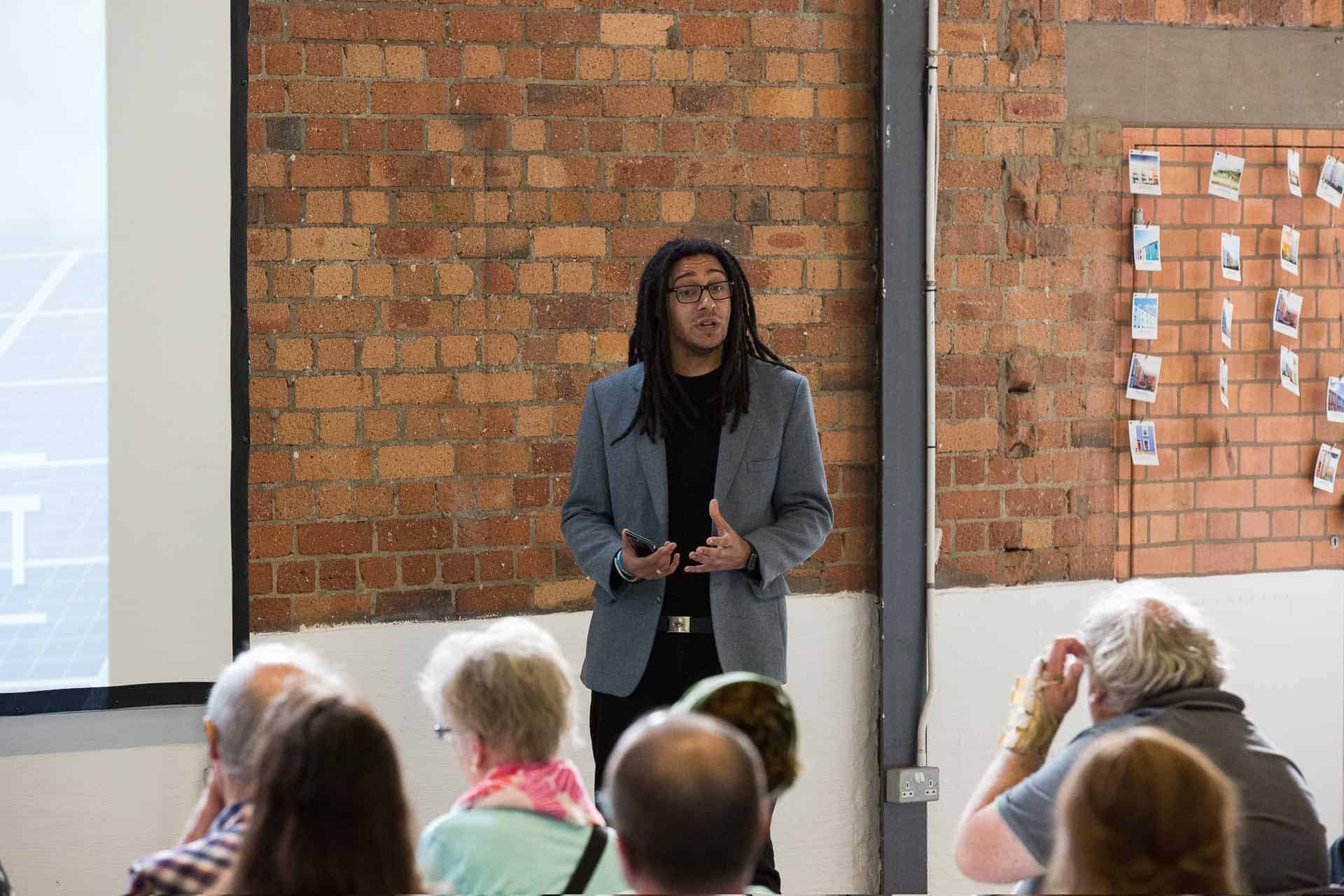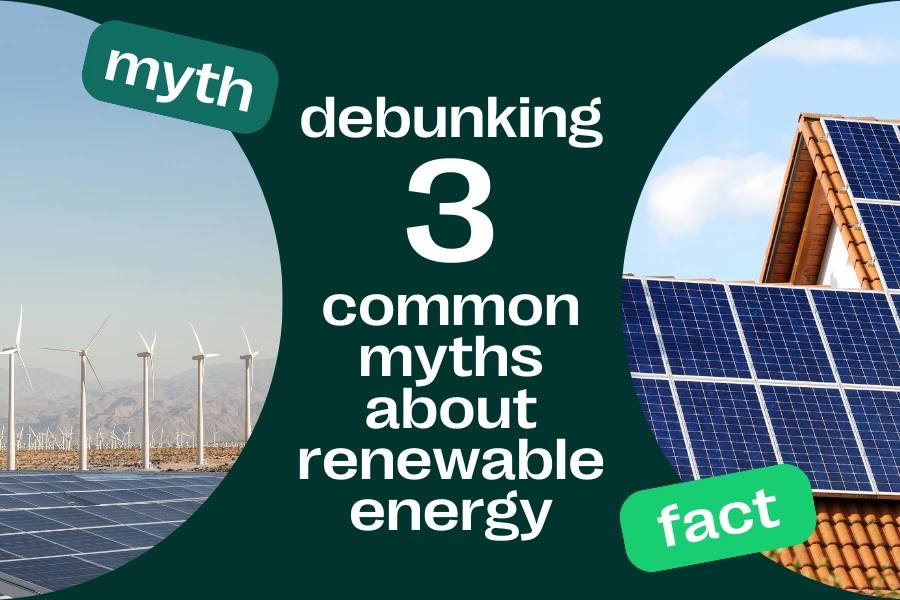Greenhouse Pioneer: James Sterling, Bristol City Council
Greenhouse

Bristol, the home of Greenhouse PR, has impressive ambitions to be completely carbon neutral by 2050. The plans require substantial investment, so with just over one month to go until the funding window closes, we spoke to James Sterling, Bristol City Council’s Senior Marketing and Communications Officer for energy, to find out more.
Tell us, in 20 words or fewer, about Bristol City Council’s Energy Service – what's your mission?
Keeping Bristol on track to be carbon neutral by the year 2050, through the delivery of innovative energy projects.
What drives you?
We have a city with an incredible track record of pioneering and doing things differently. This spirit of innovation is reflected in the way the council has risen to the challenge of tackling climate change through investment in renewable and low carbon solutions across Bristol. We’ve done so much to make our own buildings greener and more efficient and we’re now offering our expertise to the private sector, other public bodies and domestic customers.
My job is to translate and convey all of this amazing activity to the many thousands of people that access our services. It means communicating and building relationships with a broad range of partners and customers, from individual householders right up to big businesses. It’s the best job in the world, truly and we’re very lucky to have a local population that’s so engaged in the energy and climate change narrative.
What is your greatest achievement to date?
We’re very proud to say that we are the only local authority in England to own and operate its own wind turbines – delivering 5MW of clean energy for the city. I also get an enormous sense of achievement from being a part of the setup of Bristol Energy, our own homegrown gas and electricity supplier. Launched in 2015, Bristol Energy is owned entirely by Bristol City Council and one of the only municipal energy companies established since the 1970s.
Bristol Energy has gone from strength to strength, now supplying over 100,000 customers nationwide whilst tackling fuel poverty head on for the most vulnerable people in our city. It’s great to know that the profits from the company are reinvested back into the city and that Bristol Energy is constantly adding more and more renewables to the mix. I’m extremely proud to have been involved in the development of a local brand that challenges the way energy companies can work and even more proud to see the work that Bristol Energy is doing to support people in need.
What are the challenges you face?
Finances will always be a big challenge when delivering energy projects for a local authority, which is one of the reasons why we’ve recently launched our City Leap Prospectus. It’s a call for local, national and international partnership to create a smart and sustainable energy system for Bristol. We’ve made an excellent start in all that we’ve achieved but we know that our ambition outweighs the resources that we have available and we need to work in partnership to get the best for the city and the people who live, work and learn here.
What are you working on that's getting you fired up and excited?
I’d have to say the City Leap again here! We’ve spent a number of years identifying the energy and infrastructure opportunities in the prospectus and have identified investment opportunities of over £800m. The opportunities range from renewables, low carbon heat networks, energy efficiency, marine energy, smart technology and everything in between. It’s an opportunity to do something truly transformational for the city’s energy system.
We’ve now released these opportunities into the big wide world and it’s causing so much interest already. You have to be fairly measured when doing something pioneering like this but I can’t help but be a little bit excited for what this could mean for my home city.
Where do you want to take Bristol City Council’s energy service next?
We’ve been delivering renewable energy projects for some really interesting organisations lately, including a rooftop solar installation on the revamped Ashton Gate stadium. It’s great proof that the skills and knowledge that we’ve built up allows us to operate competitively in a commercial world. We have more projects on the horizon and ultimately I’d like to see us as a key delivery team operating across the South West to help organisations get more sustainable.
What can we, as individuals, do to make a difference?
Everyone has a part to play no matter how small. I believe that change starts at a grass-roots level and history has shown us that sometimes it only takes a few people to be bold when challenging popular opinion. Something as simple as telling a friend that you’re trying to avoid single-use plastics or that you’re considering switching to a more ethical energy supplier starts a conversation. It may be something that your friend has never considered before, but creates a dialogue that could have a powerful ripple effect.
I guess what I’m trying to say is, if you’re doing something positive, don’t be afraid to let other people know about it in a positive way. But don’t preach!
How is what you are doing inspiring change in others?
I think it’s really important for organisations to lead by example and what’s better than a local authority taking a lead on cutting carbon emissions. We were the UK’s first ever European Green Capital in 2015 and we’ve made headlines again recently by announcing that we’ve cut our carbon emissions by 60% - meeting our 2020 carbon reduction target three years early.
Through our engagement with other local authorities across the country we know that we have set the trend for how councils can play an enabling role with community energy and the ways that large scale infrastructure projects can be delivered in a city environment. We’re always keen to share best practice, so I’d welcome anyone who wanted to come for a look around.
Can you recommend a life- or game-changing book for our readers?
I’d have to say Don’t even think about it by George Marshall. It was the first climate change book I ever read and it’s still my favourite, with its non-judgmental view on why people don’t see environmental dangers as a priority and the very complex aspects of human nature that prevent us from taking action on climate change. Despite its complicated theme it’s an extremely accessible read, so I’d urge anyone in the industry to pick it up and add it to their reading pile.
What do you listen to when you're cooking dinner?
Jazz FM mostly. It’s a great way to unwind after a long day and a hectic commute.
What's the best advice you've ever been given?
One of my early bosses once to me to “Be a pirate”. It sounds daft but the meaning behind it is to go against the grain and do the things that challenge the status quo. In the world of energy that’s really important and it’s something I always try to keep in mind when I’m thinking up new ways to communicate information and engage with people. It’s also pretty appropriate for someone who was born and raised in Bristol!
Can you leave us with who'd be your Eco Hero?
Leonardo Di Caprio – his acting may not be to everyone’s taste but I believe he’s done so much to bring the environment and sustainability conversation to dinner tables and sofas around the world. I love that he continues to champion the green agenda and I’ve no doubt that he’ll inspire a generation of scientists and environmental activists who will achieve great things for the planet.


